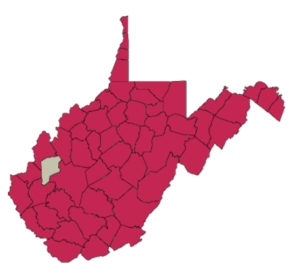If the 2018 strike was about guaranteeing our children access to quality teachers, the 2019 strike is even more foundational—it is about guaranteeing that quality public schools remain free and accessible to all children rather than a select few.
It is altogether fitting that this year’s strike occurs on the same week forty years ago that the West Virginia Supreme Court recognized that children have a fundamental right to an adequate and equitable education. West Virginia teachers rightfully perceive that the charter and voucher provisions of SB451 represent an existential threat to that fundamental right to education and the very ideal of public education generally.
But there is a more immediate threat posed by SB451 that has not received as much attention—the bill shifts greater responsibility for funding schools from the state to the county school districts and their taxpayers. For certain rural counties, that shift will present a different kind of school choice: the choice between higher school taxes or drastic school cuts and consolidations.
Against this future, teachers are once again forced to walk the line—because no one else will stand up for our children’s rights. They do so selflessly, striking against a bill that will give them a raise. And because they are getting a raise in this bill some have speculated that the public, who solidly supported teachers last year, will turn their backs on them this year. How perverse such thinking must be that parents would now seek to quell a courageous uprising aimed a protecting their own children’s rights.
But we are told that choice, that liberty, is paramount. Indeed it is—just not the liberty that some want to gamble away the whole system to enjoy. The liberty inherent in the fundamental right to education is not a negative freedom from state interference, it is a positive freedom to state action that cultivates our children’s capacity (their real freedom) to become full and equal citizens. All children, not just the winners of a school lottery or those whose parents who can afford to send to private school with the benefit of an education savings account.
That brings us to another value at stake here—equality. Not strictly equal funding, not the same curriculum. A substantive equality of opportunity that meets the diverse educational needs of children, so that all—rich and poor alike—have access to a quality education. If we can achieve that measure of equality, the liberty that we will all enjoy is the freedom not to have to make a choice because the school in your neighborhood is just as good as any other.
SB451 distorts such notions of educational equality and liberty. That, in short, is why our teachers are striking. Again.
